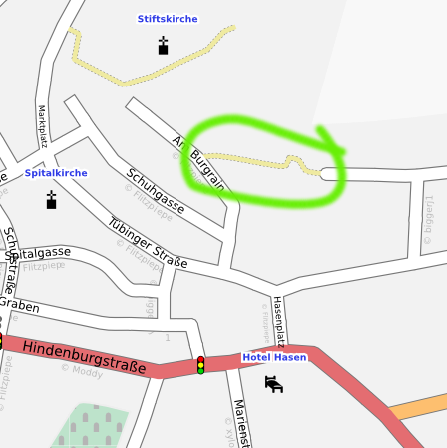A few weeks ago, NYU hosted an interesting event about the future of the Internet, appropriately tittled The Futures of the Internet, the video of which is now available
here. One of the panelists was
Jonathan Zittrain (who recently wrote an important
new book bearing the same name as the event) and during the talk he provided a few ideas about how geeks and developers can help secure the Future of the Internet. While I agree with a lot in fact most of his assessments about the state and fate of the Internet as he lays out in his book and his talks, his characterization of geek/hacker/developer politics is
not one of them.
Basically, one of Zittrain’s claims is that developers are not doing enough to save the Future of the Internet and it is their rampant, Atlas-like libertarianism, which is, in part, to blame (first made 37:20 minutes into the video for those who want to listen to the actual comments). They have little-to-no political consciousness, are too cool to care about the fine print and they don’t care about the broader politics of the the Internet because they assume that they can just hack around any sort of barrier and impediment.
While we can, without a doubt, identify a strain of libertarianism among hackers, it is by no means representative of all of geekdom and in fact, is becoming more and more a worn out 1990s stereotype/clich as time passes than an accurate representation of what is a far more variegated set of ethics and practices among hackers (and I will soon publish an article on this topic).
It also completely fails to capture the ethical spirit as well as sociological, and political workings of one of the most important strains of hacking free and open source software which not only powers most of our (open) Internet but which in fact has provided a
pretty hefty ethical backbone by which to conceptualize one of the ways we should think about the fight for the future of the Internet.
Ok, time for a rant now

Geeks not only designed the Internet, an indisputably revolutionary medium, but also implemented, and continue to maintain it, and then in their copious spare time, also engage in fighting back the political, legal and corporate encroachment which threatens to limit the very revolutionary nature of the Internet (as
Chris Kelty’s new book on Free Software argues). If these acts by geeks are not enough political action, then maybe the development of not just one, but multiple entirely open and free alternatives to the only two proprietary operating systems that exist today might be a political act that would satisfy? Many would agree that even simply using a free operating system is a political act. It would be better to claim that individuals, lawyers and other political actors are not doing enough to save the Future of the Internet, rather than imploring the already overtaxed geeks to set aside everything that they are already doing to do something even more.
(end rant)
It also seems that when it comes to political questions related to the Internet, net neutrality being the hot topic now, or fighting restrictive and problematic laws like the DMCA, one of the only groups of people (outside of lawyers and librarians) to actually understand and dissect the fine print (and geeks actually are pretty attuned to and like to dissect the fine legal print), to protest these unsavory laws, and to support the organizations who are doing something about it (like the
EFF), are geeks and hackers. While many geeks are not necessarily keen on
conceptualizing their labor in traditional political terms, or aligning their technical projects with a political affiliation, and yes would rather just be writing good code, they do fight for their productive freedom and this productive freedom just happens to relate to most questions and concerns related to an open, accessible, and tweakable Internet, built by the geeks, lest we forget
What was perhaps most surprising was that he also seemed to think that geeks and developers have not turned to “apprenticeship,” nor policies and procedure to coordinate their development projects, unlike Wikipedia, which he considers a shining example that geeks should look towards as a beacon of policy that geeks should consider emulating in their projects (comments made answering my question). He clearly has not been hanging out with any
Debian developers in the last 10 years nor has he gone through their New Maintainer Process

In other words, he seems to think they are allergic to regulation due to their accentuated libertarianism, or are against structure because of their anarchism, neither which is remotely true. I think I found this characterization most ironic and problematic for before Wikipedia was even an entry on a Wiki, projects like Debian (and most other F/OSS projects) were
transforming and changing to integrate normative procedures and policies that allowed a
group of people to work together, scale, grow and deal with crises’. No, they don’t have the Wikipedia badge system, but that system is emblematic of Wikipedia’s own transformation into integrating its own normative procedures and policies for working together, not an example of an idealized policy system that other projects are too primitive to have evolved into yet.
About one hour into the talk when questions opened up, I objected to his characterization, but given his answer back to me, I did not make much of a dent in his thinking. Another lawyer
Tim Wu (who also wrote a
wonderful book on the Internet) chimed in to give me some props and also made a good point that even if geeks are the only groups of people who would storm AT&T and know intimately about the importance of net neutrality, there is a lot of room for thinking about how to strengthen and improve the tactics and politics among geeks and developers so that we can ensure the type of open and generative Internet and set of technologies we value.
As part of thinking and rethinking new strategies, it is as key to acknowledge and honor the past. In this regard, free software development has been pivotal both in terms of providing software (and making it is an important political act as is choosing to use free software over propriety software) and a set of important set of ideas that a lot of lawyers like
Yochai Benkler and
Lawrence Lessig have run with to make some important political claims of their own.
So despite my rant above, which was a rant and thus exaggerates things to some degree, I do think there is much more that geeks and non-geeks can do, such as help translate these uber-geeky issues into less geeky terms (and actually this is already being done by some geeks as the work of
Jelena Karanovic has shown, or translate the technical issues into new domains as the uber-geek
Karl Fogel is doing with question copyright but first lets give credit where credit it due and recognize that labor is political
 The strongly connected set of the GPG keys graph contains a bit more than 40000 keys now (yes, that’s a lot of geeks!). I wondered what was the biggest clique (complete subgraph) in that graph, and also of course the biggest clique I was in.
It’s easy to grab the whole web of trust
The strongly connected set of the GPG keys graph contains a bit more than 40000 keys now (yes, that’s a lot of geeks!). I wondered what was the biggest clique (complete subgraph) in that graph, and also of course the biggest clique I was in.
It’s easy to grab the whole web of trust  I took a little time today to make a new release of the
I took a little time today to make a new release of the  Yesterday I was visiting the
Yesterday I was visiting the 

 A party calling themselves Oslo Byaksjon this year entered the elections, with the tagline “P parti med byen” (roughly, “On the city’s side”, or “With the city”).
Their platform wasn’t horrible, and I briefly entertained the notion of voting for them. In the end I didn’t, for some important reasons; but that’s not very relevant.
A Norwegian tradition is for the political parties to set up stands leading up to the election, along
A party calling themselves Oslo Byaksjon this year entered the elections, with the tagline “P parti med byen” (roughly, “On the city’s side”, or “With the city”).
Their platform wasn’t horrible, and I briefly entertained the notion of voting for them. In the end I didn’t, for some important reasons; but that’s not very relevant.
A Norwegian tradition is for the political parties to set up stands leading up to the election, along  A new law is being made in germany, which will make consentual sex between minors a crime, which has to be punished with four years of prison at least, plus ending up in a sexual offenders database for life. I, for one, do not welcome our new taliban overlords.
A new law is being made in germany, which will make consentual sex between minors a crime, which has to be punished with four years of prison at least, plus ending up in a sexual offenders database for life. I, for one, do not welcome our new taliban overlords.